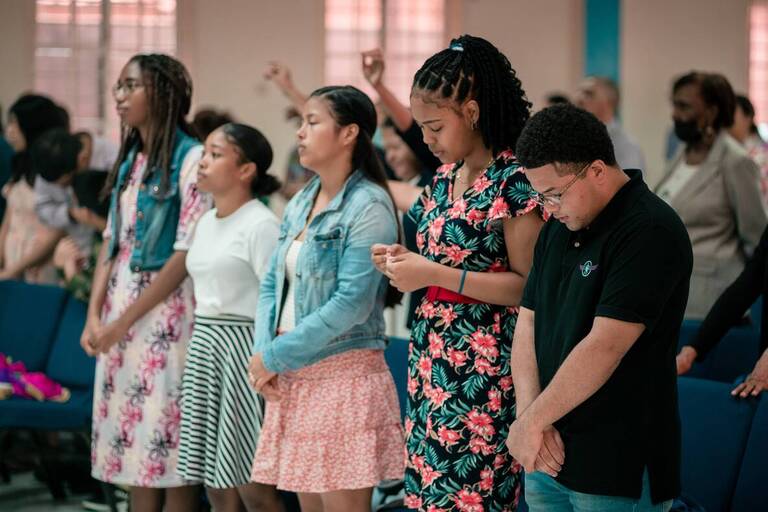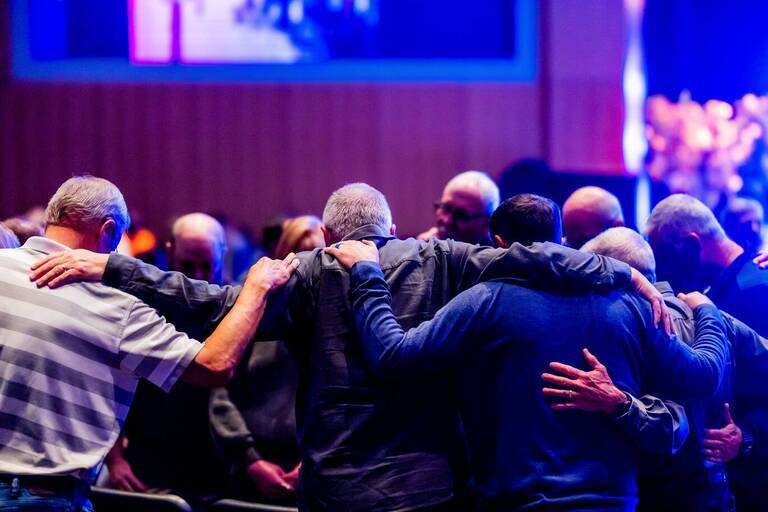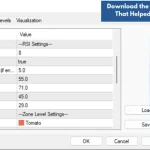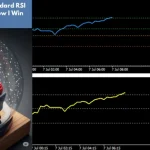6 AM to 12 PM Christian fasting is one of the most popular fasting practices today. This type of fasting falls within a broader spiritual discipline that has been embraced by many Christians throughout history. The Tianjin International Christian Fellowship fasting guidelines, for example, offer a structured approach to fasting from morning to evening. While some may view fasting as a rigid or legalistic exercise, others may question its spiritual value. However, fasting that works is rooted in strong biblical foundations. When practiced as part of Christian fasting practices, it can deepen your relationship with God, strengthen your prayer life, and promote spiritual growth. Understanding key fasting guidelines can help make your experience more purposeful.
This article provides a practical overview of Christian fasting to help both new and mature believers understand its meaning, significance, purpose, and effective application. We will explore questions like: What exactly does the Bible teach about fasting? What spiritual and physical benefits can fasting provide? Is there a right and wrong way to fast? How can fasting be sustainable long-term? This article will dig into Scripture and share real-world tips so you can gain confidence in making godly fasting a vital part of your spiritual growth.

Key Takeaways on Christian Fasting That Works
- Fasting has deep biblical roots for seeking spiritual growth
- Research shows fasting also boosts physical health tremendously
- The 6 am-12 pm fast is a strategic and sustainable pattern
- Careful preparation and commitment unlock profound blessings
My Experience with Christian Fasting
Groomed by the Church to Fast
I have had my fair share of the ups and downs of life, and I still do. But the thing that always gets me going is fasting and a spice of prayer. I was very young when I started fasting from 6 am to 12 am because the church we attended groomed us for it. But that would prepare me for what is ahead.
Was I ready to skip meals as young as I was, no, but was it necessary that I skip them yes.
I was about 12 years old when I walked into a conversation a certain woman was having with my mom. She was encouraging my mom to take swift action on my health because I was sickly and lacked blood (I used to be a sick child).
I was a sickler
I walked out without any of them knowing. The second conversation happened, and then I knew something was not right with me. It was my first few months in Secondary School, it was a beach excursion organized by the school.
Like other children, I was having fun in the water, even though I was feeling cold. A child will always be one, I ignored that condition just to have a feel of the experience.
Suddenly, a hand pulled me out and took me out of the water to one of the teachers who was my custodian then. She says, “You know your son is a sickler, and you allowed him inside the water.”
From Sickler to AA Genotype,
That day changed everything about me. I was not a normal child anymore. One day I prayed to God, and I said, “Please put a drop of your blood in mine so I won’t be a sickler anymore”. Throughout my six years in Secondary school, I would fast and pray from 6 am to 6 pm each year for my birthday. If I am going to be thirteen, I will fast (6 am to 6 pm) every day for thirteen days and end on the day of my birthday.
I kept fasting that way even when I was twenty and out of Secondary school. I have long gone from being a sickler to AA genotype, O+ Blood Group, and a blood donor.
The recent routine of that type of fasting I did was 43 days for my 43rd birthday.
Understanding Christian Fasting from 6 AM to 12 PM
Fasting from 6 AM to 12 PM can help Christians focus more on their spirituality. This time frame can serve as a simplified partial fast, where believers abstain from specific foods while maintaining their spiritual focus. It is similar to the structured Bible fasting examples, such as the Day of Atonement fast, which encouraged God’s people to dedicate themselves fully to Him.
By incorporating fasting and prayer, Christians can start their day with a mindset centered on seeking God’s presence and guidance. They may also draw inspiration from Jesus fasting in the wilderness for 40 days, where He sought strength and clarity through total surrender.
Christians are free to decide how long to fast and how often to fast, as fasting should be a Holy Spirit-led fasting practice tailored to their spiritual needs. Whether following a standard fast of only water or liquids or trying alternate day fasting, believers can explore different fasting ideas that help them deepen their connection with God and align their thoughts and actions with His will. Starting the day by seeking God’s presence sets a positive tone for the rest of the day, giving them a clear purpose and heightened spiritual awareness.
Definition of Christian Fasting.
Christian fasting involves voluntarily abstaining from some or all food and drink for spiritual purposes and aims like seeking God’s guidance, overcoming sin, or growing deeper in Christ. Most fasts last 24 hours or more, but the Bible does not mandate any required frequency or duration, allowing flexibility. At its core, fasting is a spiritual discipline often combined with prayer to deepen faith. Its purposes can include praising God, humbling oneself before Him, mourning, focusing on prayer, strengthening faith, or even feeling refreshed mentally, spiritually, and physically.
Biblical Perspective on Christian Fasting
The Bible records many followers of God fasting in the Old and New Testaments. It served purposes like:
- repenting from sin – Nineveh fasted for three days (see Jonah 3:5)
- seeking God’s will – (see Genesis 24:11-12-15)
- and mourning for the sick – (see 2 Samuel 12:17).
The Bible views fasting as a beneficial voluntary exercise, not a compulsory ritual. Jesus spoke of fasting’s value when done secretly unto God, not to impress man (see Matthew 6:16-18)
Examples of Fasting in the Bible
Biblical heroes of faith relied on fasting to sharpen and strengthen their relationship with God. According to the Bible, these are examples of Biblical fasting:
- Moses fasted for 40 days and 40 nights to receive the 10 Commandments (see Exodus 34:28-35).
- King David fasted for 7 as he pleaded for his sick newborn’s healing (see 2 Samuel 12:17).
- Queen Esther called all the Jews to fast 3 days before she courageously approached the king (see 5:2)
- The prophetess Anna fasted regularly in the temple night and day (see Luke 2:36-38).
Importance of Fasting in Christianity
Aside from spiritual growth, fasting teaches self-discipline, and self-denial, and helps believers grow more thankful for daily bread when not fasting. As Christ said some evil spirits only respond to “prayer and fasting”: This kind goes only by (see ). Fasting can also strengthen spiritual authority against dark forces. What is Christianity anyway without authority?
A practical strictly 6am to 12pm fasting done occasionally can see effective spiritual growth in a believer’s life, as well as many physical benefits.

Addressing 6am to 12pm Christian Fasting
Christian fasting and a sustainable 6am to 12pm strategy.
Legitimacy of Fasting from 6am to 12pm.
While no specific Bible verse mandates the 6am to 12pm time duration, the Bible gives principles for moderate, scheduled fasting periods. This 6-hour span is reasonable for most healthy adults. Stopping intake halfway through the day allows the body to enter into a fast state. The Bible is our guide to begin modestly, but allowing the Holy Spirit to customize direction over time by the season of life factor, helps to a large extent. The highlighted 6 am to 12 pm pattern strategically fits into busy modern society.
Factors Influencing Fasting Practices
The Bible allows for flexibility in fasting practices. Factors like health status, age, activities, lifestyle, and duration of fasting help determine appropriate expression. Seeking medical advice for long fasts is wise, especially for those with conditions requiring medication or regular nourishment. The Bible says that God is not the author of confusion, (see 1 Corinthians 14:33 ) which also applies to the practice of fasting.
Intentions Behind Christian Fasting
The Bible encourages fasting for numerous spiritual purposes like seeking God’s guidance, repenting from sin, dedicating oneself fully to the Lord, praying for the oppressed, and breaking yoke, to mention a few. It should be voluntary and free from hypocrisy. The focus must remain on God, not outward displays. Right motives matter greatly. (see Isaiah 58:6-7).
Benefits of Fasting (6am to 12pm)
This moderate 6-hour fast allows busy believers to remain active while enjoying spiritual and physical rewards, and research also shows it helps with:
- blood sugar regulation,
- mental clarity,
- improved circulation and heart health
- appetite correction
- blood pressure
- weight management
- relief for various autoimmune diseases
- promotes cell regeneration and enhances cognitive functionality
- triggers the body’s self-healing mechanisms
Most importantly, it carves out extended time and hunger for God to speak and the renewal of our hearts. Additionally, the compassion and social awareness gained from fasting should translate into generosity and care for the poor and marginalized. In a world obsessed with instant gratification and self-indulgence, fasting crucially teaches patience, self-control, and reliance on God. As Christ taught, intense spiritual battles sometimes warrant the empowering of prayer with fasting (see Mark 9:29)
The Length of Christian Fasting
Here is an additional expansion covering different fasting patterns in Christianity, factors to consider when choosing a pattern, and biblical references to fasting times:
Different Fasting Patterns in Christianity
Christians throughout history have fasted according to various patterns – intermittent, periodic, absolute, partial, or rotational.
- Intermittent – involves fasting on specific days.
- Periodic – fasting happens a few days, weekly, monthly, or annually.
- Absolute – -fasting consumes only water for extended periods.
- Partial features abstinence from certain food groups.
Factors to Consider When Choosing a Pattern
When you decide to fast, consider your:
- age
- health factors
- lifestyle
- duration
Activities within a fast help determine suitable patterns also. Working or nursing mothers along with those managing medical issues should opt for cautious, and moderate plans. The Bible encourages wisdom in adaptation so that the focus remains on spiritual not physical stressors.
Biblical References to Fasting Times
The Bible accounts for the followers of God with regular fasting during daytime hours due to cultural norms and work demands. Night fasting was less common but sometimes practised alone with intense prayer needs. Jesus indirectly endorsed the cultural practice of regular daytime fasts by speaking against the religious hypocrisy surrounding them, not the timing itself. If you have a busy lifestyle by all means fast from 6am to 12pm, whether you are new to fasting or experienced this pattern has practical advantages and enriches your spiritual journey!
Some Consideration for 6am to 12pm Fasting
Preparation for a Successful Fast
Physically preparing yourself for fasting allows an unhindered focus on God. It is your body that gets weakened during fasting, so you must prepare it days before fasting to avoid breakdown.
- Hydration – hydrating excessively during the preceding days prevents dehydration and headaches.
- caffeine and sugar – gradually eliminate caffeine and sugar from your diet days before your fasting.
- Meditate -identify meaningful prayer goals and study topics guides and the allotted time.
- Communicate -inform family, friends, and colleagues ahead when applicable to prevent unnecessary distraction.
- clean up – clean your environment when you observe the fast.
Stay Focused During the Fast
Staying focused during the fasting period is not too easy. You have to be intentional with the routine. The first few hours often feel the easiest while work activity naturally restricts you from food. However, as time goes by, tiredness and hunger will set in. To overcome the temptation to eat, set prayer reminders on your cell phones every two hours to help mitigate shifting attention later when hunger and cravings intensify.
For extended fasts, moderate activity maintains energy and distraction whereas excessive exertion can be counterproductive. Accountability partners provide essential motivation and wisdom.
How to Break the Fast
Now, when you are done with your fast you must understand that your eating routine must change. Carefully easing into ordinary eating habits will prevent digestive issues like cramps or nausea. For example, a small wholesome snack and fruit juice or vegetables break the fast sufficiently before proceeding to a gradual reintroduction of complex foods, coffee, etc.
Hydrating excessively enables the digestive system to acclimatize. Recording notable revelations and praises keeps further building momentum in applying spiritual fruits reaped after the initial fast concludes.
Final Words On Christian Fasting
If you want your fasting to work, whether you are fasting from 6 AM to 12 PM, Christian fasting from sunrise to sunset, or even completing a 24-hour fast, you must maintain a good-standing relationship with God. By fasting, you are practicing a spiritual discipline that helps you grow closer to Him.
For those new to fasting, I encourage you to try a partial fast in Christianity, such as fasting from 6 AM to 12 PM. It’s a practical way to fit fasting into busy modern lifestyles, allowing you to stay active and clear-minded while still abstaining meaningfully. This type of fasting also helps foster spiritual sensitivity as the day progresses.
Exploring Christian fasting types explained in the 6 AM fasting prayer guide or following biblical fasting instructions can help you fast more purposefully. Whether you are considering fasting without food during daylight hours, trying alternate day fasting in Christianity, or reflecting on Jesus’ 40-day fast example, these practices offer valuable lessons for spiritual growth and a deeper connection with God.
Just to recap:
- Fasting is a spiritual discipline with rich biblical roots and many examples from Moses to Jesus, and the Old Testament to New Testament. It opens doors to compelling spiritual benefits like deeper intimacy with God.
- Emerging research confirms extensive health advantages of fasting including healing properties, disease prevention, and sustained cognitive performance.
- Practising fasting strategically and sustainably without extremes fits even busy modern lifestyles. The suggested 6am to 12pm fast allows for remaining active at work while achieving meaningful denial.
- Both beginner and experienced fasters will discover profound blessings by committing to regular seasonal fasts for spiritual breakthroughs after reasonably preparing both body and spirit.
I would love to hear about your fasting experience. At what age did you start fasting? Share in the comments.
Remember, everything works for your good! God bless you richly.
Frequently Asked Questions On Christian Fasting
- What does fasting mean in Christianity?
- Voluntary abstinence from food/drinks for spiritual purposes.
- What biblical examples endorse fasting?
- Moses, David, Daniel, Esther, and Jesus fasted.
- Does fasting have health benefits?
- Yes, research shows benefits for circulation, heart health, immunity, autoimmune relief, and more.
- Why fast from 6am-12pm specifically?
- It is practical for work schedules yet still long enough to grow spiritually.
- How can fasting improve my walk with God?
- It cultivates self-control and intensifies prayer dependence on God.
- How should I spiritually prepare for a daytime fast?
- Pray to identify meaningful spiritual goals and study topics that will fill the time.
- Should I gradually change my diet beforehand?
- Yes, gradually reduce caffeine, processed foods, and unhealthy cravings a week before.
- What should I expect physically when fasting?
- Possible headaches, fatigue, or cravings which can be eased by hydrating excessively.
- How can I stay focused for 6 hours of fasting?
- Set hourly prayer reminders, and minimize busy work schedules if possible. Seek accountability.
- What is the best way to break a 6-hour fast?
- Rehydrate first, then gradually reintroduce light food over 30-60 minutes before heavier meals.











Your point of view caught my eye and was very interesting. Thanks. I have a question for you.
I don’t think the title of your article matches the content lol. Just kidding, mainly because I had some doubts after reading the article.
Can you be more specific about the content of your article? After reading it, I still have some doubts. Hope you can help me. https://www.binance.info/register?ref=IHJUI7TF
Thank you for your sharing. I am worried that I lack creative ideas. It is your article that makes me full of hope. Thank you. But, I have a question, can you help me?
Thank you for your sharing. I am worried that I lack creative ideas. It is your article that makes me full of hope. Thank you. But, I have a question, can you help me?
Thanks for sharing. I read many of your blog posts, cool, your blog is very good.
Can you be more specific about the content of your article? After reading it, I still have some doubts. Hope you can help me. https://www.binance.info/register?ref=IXBIAFVY
Can you be more specific about the content of your article? After reading it, I still have some doubts. Hope you can help me.
Thank you for your sharing. I am worried that I lack creative ideas. It is your article that makes me full of hope. Thank you. But, I have a question, can you help me? https://accounts.binance.info/es/register?ref=RQUR4BEO
Can you be more specific about the content of your article? After reading it, I still have some doubts. Hope you can help me. https://accounts.binance.info/register-person?ref=IXBIAFVY